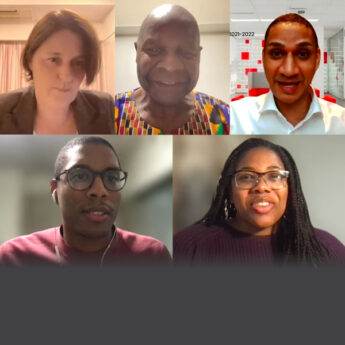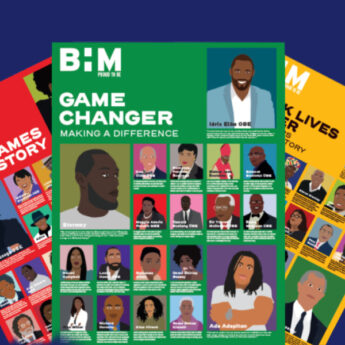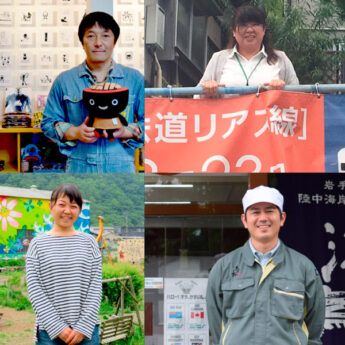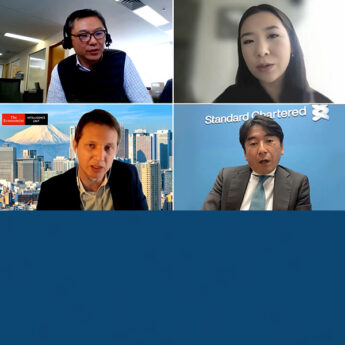London 2012 can offer insights for Tokyo 2020
- Leadership and agility needed for event organisation
- Role models key to delivering diversity and inclusion
- Men should be involved with empowering women
As Tokyo looks to the London Organising Committee of the Olympic and Paralympic Games for knowledge about the hosting experience ahead of 2020, it is clear that it is not only the UK’s successful delivery of the Games that is of interest.
The London committee’s deliberate and concerted effort to use the Games to inspire social change—and the impact achieved—is causing discussion of how Tokyo might take a leaf out of London’s book.
On 17 June, the British Chamber of Commerce in Japan, in association with the American Chamber of Commerce in Japan and the Australian and New Zealand Chamber of Commerce in Japan, held a panel discussion, “Agents of change; the Olympic example”, which attracted an international audience of around 90 attendees.
Keynote speaker Sue Hunt, director of strategic programmes at the London committee, said that the power of sport and the deadline that the Olympic and Paralympic Games provide can spur on change.
The private-sector organisation took an integrated approach—a ground-breaking position—focusing on diversity and inclusion (D&I). They defined diversity as including gender, age, disability, ethnicity, sexual orientation and religion.
With Prime Minister Shinzo Abe’s policies designed to increase the hiring and promotion of women in a bid to strengthen the economy, it is perhaps not surprising that Japan has embraced D&I. In fact, Hunt’s series of high-profile meetings while in Japan included an audience with the prime minister’s wife, Akie Abe.
“The discussion [on D&I] has been so welcome”, Hunt told BCCJ ACUMEN. “People really want to talk. There is that sense that they have an opportunity to do something different now, and are open to new ideas”.
The key to change, she said, is empowering women to work. This does not only involve the provision of improved social infrastructure, such as more widespread childcare services, but also the act of engaging men.
“It’s important for men to be involved—it doesn’t work otherwise. After all, it’s not about encouraging gender diversity so women just work amongst women; it’s about working together.
“During my career, I have had some wonderful mentors. By and large they have been men, but they are men that are very open to creating the culture that women will be successful within”, she said.
Creating an ecosystem where women can thrive is certainly close to Hunt’s heart, as she visits Japan as global ambassador of Flourish, a pioneering leadership journey for female leaders by Impact International.
The programme plans to host its global launch premiere in Japan in September, followed by events in the UK and US, in the hope of “enabling Tokyo to pioneer the way”, according to Impact’s Head of Innovation Tiffany Newell.
Panel discussion member and chair of the ANZCCJ, Melanie Brock, also said that the environment is important. The Male Champions of Change programme, convened by the Australian Human Rights Commission, is an example of the part men can play in D&I efforts, she said.
Moreover, similar to the London committee’s criteria when hiring staff and procuring goods and services, the Australian initiative rejects cooperation with firms that do not reflect D&I values, hence forcing social change among businesses.
“How many women want to work for traditional Japanese companies?” echoed fellow panellist Keiichi Ushijima, principal fellow at Ernst & Young Institute Co., Ltd. “Traditionally, business relationships have been built through drinking, golfing and smoking in Japan, which are not inclusive activities”.
He believes the Games can spark demand for “new players”—women and non-Japanese living in Japan—to launch new businesses, which will fuse communities and shift the currently male-orientated society to become diversified.
Increased involvement of women in society could have a wide impact, not least because of the current role—manager of the family finances—that many ladies in Japan occupy.
“Women are one of the largest consumers of products in Japan”, Newell told BCCJ ACUMEN.
“If you had some of these women in the R&D leadership space of organisations, there is no limit to the innovation that could happen. By incorporating more senior female leaders into the workforce and government, you will get a different way of thinking”.
Hunt is keen that the issue of D&I is truly embraced in Japan, not just in relation to womenomics.
“I think [diversity] needs to be defined and people need to express that definition constantly for it to be in the general conversation in this country”.
She outlined what is needed to build an empowering organisation in the Olympic context: staff who know their purpose, feel they can be themselves and enjoy working to achieve their personal best.
Central, too, is agility and a readiness to adapt to a changing size and structure in the run-up to the Games, with strong leaders supporting those who are carrying out the work.
The necessity of robust leadership was echoed by panellist Danny Risberg, CEO of Philips Electronics Japan Ltd. He said Tokyo 2020 is an opportunity to build leaders and showcase Japan to the world, and called on attendees “to participate, be proactive and deliver”.
Hunt wished Tokyo success in 2020 and said action must start now for changes on D&I to become a reality.
“Women being role models for their children”, she said, “is such an inspiration for the future”.






